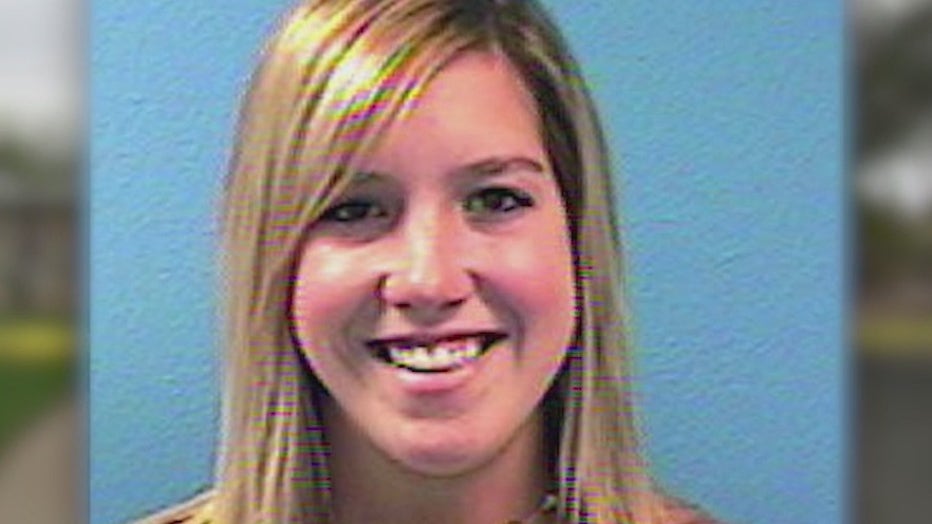Family continues to wait for justice following daughter’s 2015 murder in Scottsdale

Family continues to wait for justice following daughter’s 2015 murder in Scottsdale
It’s been six years since a Scottsdale woman was brutally killed in her own home. As Allison Feldman entered the prime of her life, her father says her future was taken away. FOX 10’s Justin Lum reports on the Feldman family’s long wait for justice.
SCOTTSDALE, Ariz. - It’s been six years since a 31-year-old Scottsdale woman was brutally killed in her own home. As Allison Feldman entered the prime of her life, her father says her future was taken away.
It took three years to solve the murder, thanks to the help of familial DNA and evidence from the suspect’s DUI arrest — but the motive remains unknown.
When Allison decided on the college of her choice, her father Harley did not expect her to leave the cold of Minnesota for the desert of Arizona. Ultimately, she picked the University of Arizona.
"She couldn't wait to come down to Arizona and once she was here, she fell in love with the campus and the people."
Five years after graduating, Allison became a medical sales rep, then she made the Valley her home, buying a house in Scottsdale. 31-years-old with a career, property, and a boyfriend.

But on Feb. 18, 2015, life changed for the Feldman family.
"We knew something was wrong. She hadn't called all day.. we hadn't heard from her the night before, her phone was off. In sales, your phone is never off," said Harley.
Scottsdale Police Detective John Heinzelman called Harley.
"He called me and said to me, ‘are you driving?’ and I said yes and he said ‘pull over,’ and I knew what was coming next. I just knew it."
Allison’s boyfriend found her murdered inside her home.
"This case was one of the worst scenes that I've been to," said Heinzelman.
Court documents revealed graphic details about the case. Her killer strangled her, beat her, and sexually assaulted her with a beer bottle. The suspect used bleach or chlorine to clean up the gruesome scene, but a large pool of blood remained.
How and why did this happen to a woman believed to have no enemies in a peaceful suburb near Pima and Thomas roads?
"This was a very quiet neighborhood. This was something that doesn’t happen here in Scottsdale," said Heinzelman.
There were no signs of forced entry at Allison’s home. Detectives collected more than 400 pieces of evidence as well as DNA from the glass bottle, furniture and a door knob.
Detective Heinzelman says investigators initially looked at Allison’s boyfriend as a person of interest.
"That’s the first person we looked at and for any number of reasons, the fact that he called us means he has information we need to know."
Police did develop a partial DNA profile from the crime scene. Despite interviews with hundreds of people, there were still no leads on a suspect.
"It started to become that issue where we talk about the phrase cold case. Is this a cold case?" said Heinzelman.
"We’re starting to have our doubts, not because the police weren’t doing really good work, but it just wasn’t leading to the suspect," said Harley.
As doubt grew, chance appeared in a meeting between strangers. Allison’s mother Elayne accompanied her father, World War II veteran Sid Shafner to Israel and Poland in 2016. Shafner would be honored for helping liberate some 30,000 prisoners from the Dachau concentration camp in Germany in 1945.
During the trip, Elayne met former three-term Arizona Senator Barbara Leff and told her about her daughter’s murder. Leff’s connections led to Attorney General Mark Brnovich approving a critical move in the case.
Enter the familial DNA search. A way for law enforcement to find relatives of the person they want to identify. At this point in late 2017, the technique had never been used in Arizona.
The AG, Maricopa County Attorney’s Office and the Department of Public Safety went to work with Scottsdale Police.
"In familial DNA, think of that more like casting a net over a large group of family members or what will be called first degree relatives of that unknown DNA profile," explained Heinzelman.
Remember the DNA profile from the Feldman murder scene? National databases could not come up with a match, but investigators now used familial DNA search to find a partial match to a first-degree relative.
The suspected killer’s brother, Mark Mitcham, was serving time in an Arizona prison for child molestation.
"When the chief called me, I’ll never forget this either, I just relaxed," said Harley.

Ian Mitcham (file)
On April 10, 2018, police arrested Ian Mitcham at the Phoenix deli he worked at. A blood sample taken from him in a DUI arrest three years earlier had been stored as evidence — that was one month before Allison’s murder.
This newly acquired DNA profile matched the one developed from the crime scene. Detective Heinzelman says there is no personal link between Mitcham and Allison.
"We haven’t found any specific motive. That’s actually something that I’m still conducting some investigation to determine if there is a link that we haven’t seen yet."
Mitcham was also arrested for aggravated DUI in 2016, accused of driving drunk with a minor. Police say he admitted to having alcohol issues, but denied knowing Allison Feldman and said he never went inside her home.
Today, Allison’s parents still visit Scottsdale. They stay in her home, keeping her memory alive.
"We’re missing a life that we had with her. We’re missing grandchildren we won’t have from her. We’re missing all the good things that would happen in her life."
The trial has been delayed to January 2022 and the COVID-19 pandemic could push it back further. The long wait for the Feldmans continues, knowing justice is in reach.
Detectives are still investigating the motive for the murder.
Related Stories:
- Man accused of killing Allison Feldman in 2015 back in court
- Allison Feldman murder case: A look at the suspect's past
- Allison Feldman's sister reacts to murder suspect's arrest
- Scottsdale Police: Man denied involvement in killing, but linked by DNA

